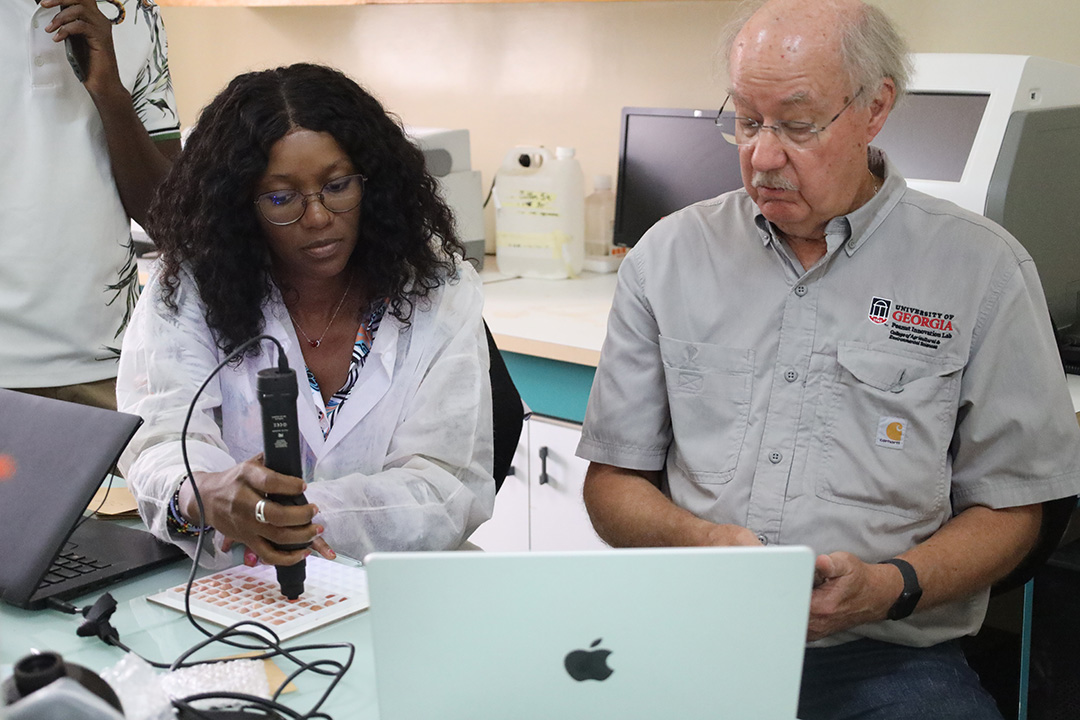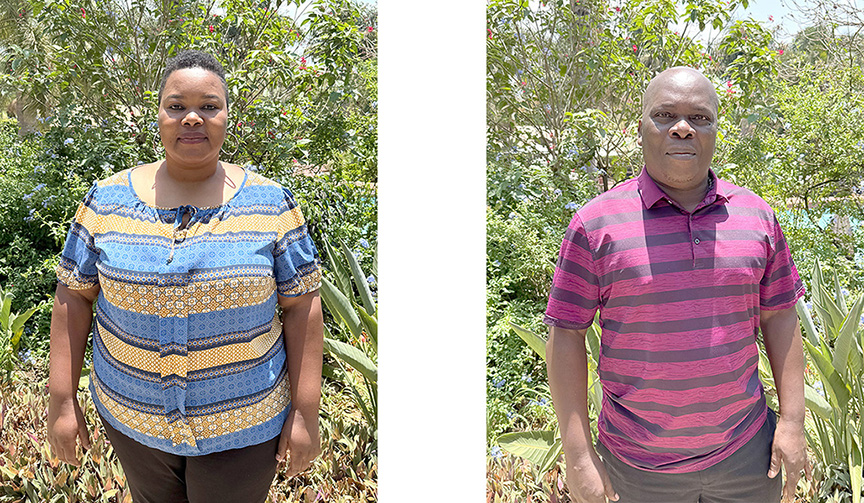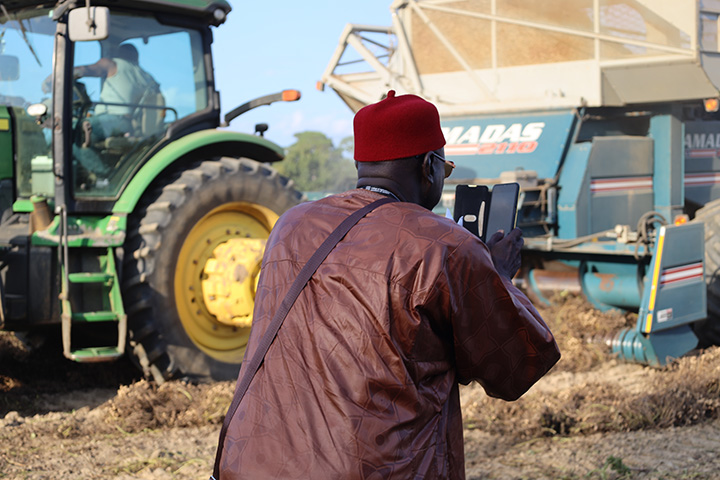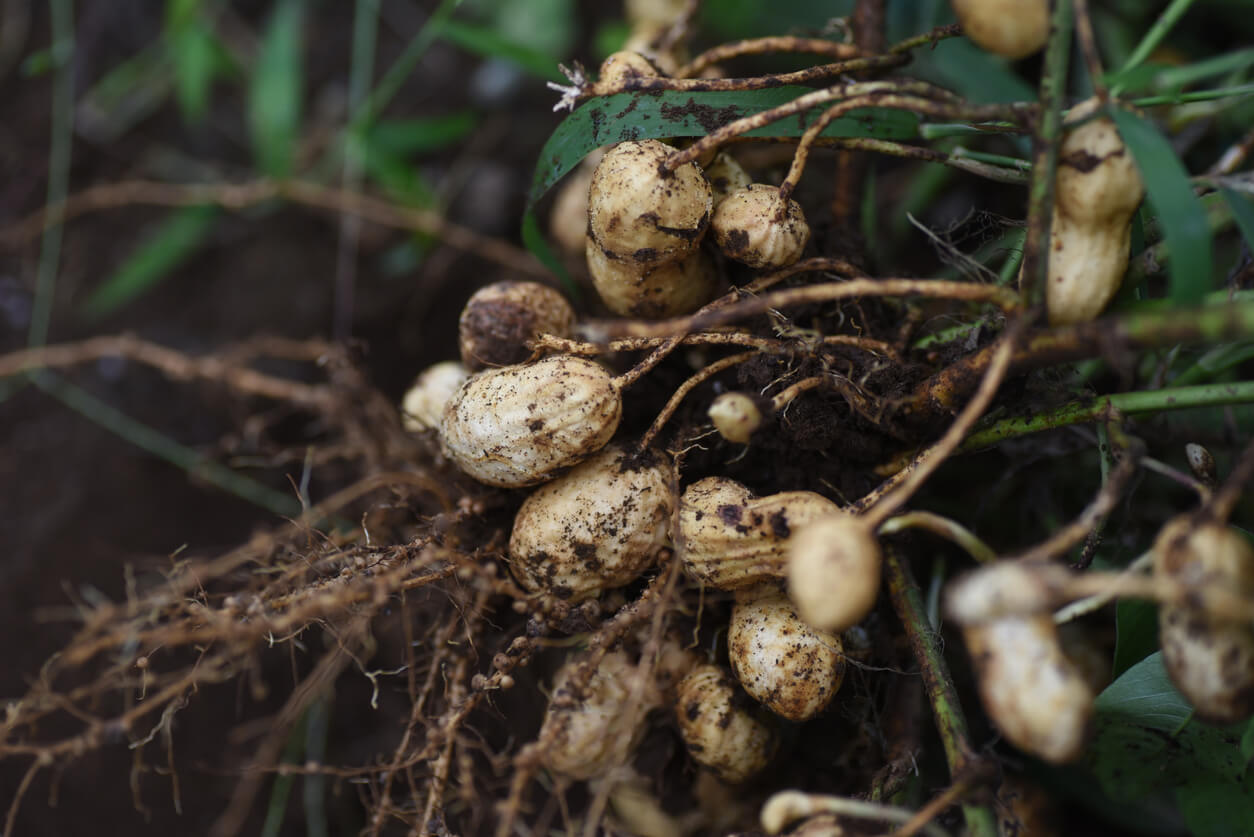Plant breeders can’t speed up how fast a plant grows, which limits how quickly they can develop new varieties. But knowing sooner how a plant is responding to its environment can speed up the process of selecting plants with certain traits and make that work more reliable.
In earlier research, the Feed the Future Innovation Lab for Peanut used hand-held sensors to evaluate peanut plants in the field, and developed vegetation indices (VIs) that could predict disease resistance, water stress tolerance, and yield better than traditional methods of evaluating plants.
Now, researchers are working with drones in four African countries, using similar technology to make selections with less time and manpower, and more accuracy, and can be used in connection with digitized methods of analysis and selection decision tools.
At the end of four years, researchers in Ghana, Senegal, Malawi and Uganda hope to have a ready-to-use, relatively easy, standardized toolbox for high throughput phenotyping that can be used by colleagues across the continent to select for disease resistance, water stress, yield and other yield-related traits in groundnut.
The researchers working on the project – some off them grad students – spent six weeks in 2024 at Virginia Tech’s Tidewater Agricultural Research and Extension Center (AREC) for a Drone School program.
Organized by crop physiologist Maria Balota, who leads the HTP project of the Peanut Innovation Lab, organized and ran the program with help from precision agriculture specialist Abhilash Chandel.
“The idea came from the earlier Peanut Innovation Lab project that I led to help farmers in Africa improve peanut varieties and yields," said Balota. “We needed to make sure that all participating countries in the project would have at least one researcher who knows how to fly a drone, collect images, and process and analyze them. With this school, we accomplished that.”
From different regions and with different levels of experience with remote sensors, the researchers had the same overall goal, so working together over several weeks gave them a time to explore drone applications and aerial imaging together.
“Agriculture in Africa is more than just a profession, it’s a way of life,” said Ugandan doctoral student Ivan Chapu. “Meeting people from various parts of Africa working toward improving people's livelihoods and sharing experiences was very insightful, and I believe these networks formed will foster collaborations in the future.”
The program included flight instruction, classroom learning, and tours to see all facets of the peanut industry. They made several site visits to see firsthand the growing, shelling, processing, packaging, and retail aspects of peanuts in the region.
By using AI, the researchers plan to move beyond
“Remote sensors excel at assessing the current state of plants, while AI enhances this capability by predicting future performance,” said Modou Mbaye, a physicist who is the AI and precision agriculture specialist for ISRA. ”By integrating data from historical crop records, weather patterns, soil conditions, and management practices and genomic information , AI enables more accurate and actionable insights.
By using AI with drones, Mbaye not only will help breeders diagnose which plants are performing well, he will help breeders and farmers to predict how plants will perform in the future based on conditions.
By analyzing extensive datasets from the field, AI will find trends and patterns beyond human perception, allowing for models that forecast crop performance under various conditions. This will help farmers make smarter decisions on planting, fertilization, irrigation, and other management practices.
Funded by the U.S. Agency for International Development, the Feed the Future Innovation Lab for Peanut is headquartered at the University of Georgia College of Agricultural and Environmental Sciences. The lab works with scientists in more than two dozen institutions in the U.S. and Africa.








